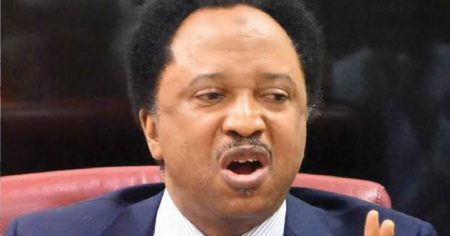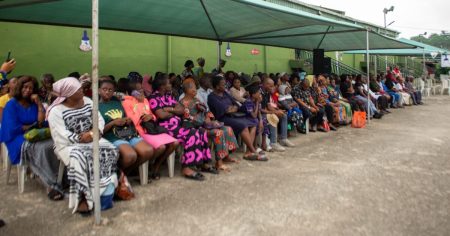Ayodele Fayose, the former governor of Ekiti State, recently shared his perspective on the passing of former President Muhammadu Buhari and the performance of the current President, Bola Tinubu. Fayose disclosed that his wife advised him against criticizing Buhari after his death, highlighting a societal tendency to speak only positively of the deceased. He admitted his intention to publicly criticize Buhari but ultimately refrained due to his wife’s counsel. This anecdote underscores a common phenomenon where individuals often withhold negative opinions about public figures after their demise, perhaps out of respect or a sense of decorum. Fayose’s revelation provides a glimpse into the complex interplay between personal opinions, societal expectations, and public pronouncements following the death of a prominent figure.
Despite the societal pressure to eulogize the departed, Fayose maintained his critical stance on Buhari’s presidency. He argued that Buhari’s administration fell short of expectations and refused to join the chorus of posthumous praise. Fayose’s position reflects a segment of the population that holds a critical view of Buhari’s legacy, even in the aftermath of his passing. This perspective underscores the ongoing debate surrounding Buhari’s performance and the challenges faced by Nigeria during his tenure. Fayose’s willingness to maintain his criticism, despite societal norms, highlights the importance of open dialogue and diverse perspectives in evaluating political leadership.
In contrast to his criticism of Buhari, Fayose offered a more positive assessment of President Tinubu’s leadership. He commended Tinubu for his accessibility and transparency, contrasting him with his predecessor, whom Fayose perceived as less approachable. This comparison underscores a key difference in leadership styles between the two presidents, with Tinubu seemingly adopting a more open and communicative approach. Fayose highlighted the importance of accessibility in leadership, suggesting that it fosters greater trust and accountability. This perspective reflects a broader expectation among citizens for leaders who are responsive and engaged with the public.
Fayose further defended the Tinubu administration, acknowledging the immense challenges facing Nigeria and arguing that the country’s problems are too complex to be resolved quickly. He emphasized the severity of the economic situation inherited by Tinubu, urging patience and understanding as the administration navigates these difficulties. This argument reflects a nuanced understanding of the challenges inherent in governing a complex nation like Nigeria, recognizing that immediate solutions are unlikely. Fayose’s defense of Tinubu suggests a pragmatic approach to evaluating leadership, taking into account the context and constraints within which the administration operates.
Fayose’s comments underscore the complex dynamics of political discourse, particularly in the aftermath of a leader’s death. His willingness to voice criticism of Buhari, while simultaneously defending Tinubu, highlights the multifaceted nature of political evaluations. His perspective reflects the broader spectrum of opinions within Nigerian society, ranging from staunch criticism of past leadership to cautious optimism regarding the current administration. This diversity of viewpoints contributes to a more robust and informed public discourse, enabling a deeper understanding of the challenges and opportunities facing the nation.
Furthermore, Fayose’s remarks highlight the importance of considering the broader context when evaluating political leadership. His acknowledgment of the deep-seated economic challenges inherited by Tinubu underscores the need for a nuanced approach to assessing performance. Rather than seeking immediate solutions, Fayose advocates for patience and understanding, recognizing the complexities of governing a nation grappling with numerous interconnected issues. This perspective encourages a more realistic assessment of leadership, acknowledging the constraints and limitations within which political actors operate. It also emphasizes the importance of sustained engagement and dialogue in addressing the nation’s challenges, recognizing that progress often requires time and collaborative effort.













